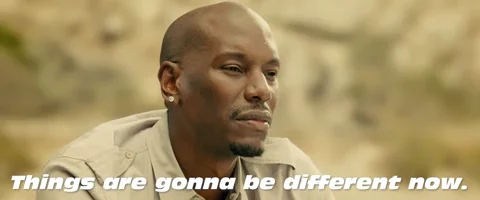
I can't say that I love change.
Early in my career as a paramedic, I worked for a county-run EMS service. What seemed like overnight, thechief of operations (training, planning, staff development) and the chief of administration (risk management, regulations, finance) swapped roles.
Shock waves were sent throughout the organization and people responded in fear, confusion, and worry. Not only who we reported to changed but so did our work processes.

Change is inevitable! Your ability to respond to change in a positive way will help you grow and thrive on the job.
So how do you successfully integrate the change at your workplace?
Acknowledge change: A changing workplace is an inevitable response to a change in the marketplace, new technologies, or regulations.
Adaptability skills: Be willing to change your mindset.

What Resistance to Change Looks Like

Resistance can look different depending on your personality style:
Lack of involvement — seeking exemptions from the change
Absenteeism — skipping meetings and trainings or missing work
Falling productivity — missing deadlines and decreasing work output
Expressing negativity openly at work — complaints, critical comments, and excuses
Sticking to "old ways" — dismissing new processes and "finding workarounds"
Can you think of a time in your life when you resisted change? Can you recognize these signs of resistance in yourself or those around you?

Thinking back to the management swap in the EMS department, I remember feelings of confusion, fear, and frustration emerging. It caused me to shut down and disengage from management.
Being able to recognize the signs of resistance in yourself means you can start to honor that resistance because it's there for a purpose.
Resistance is there to let you know there is an unmet need.

My unmet need was for communication from management. I needed to know what the change management plan was and why. I also needed to know what changes in my job performance, if any, would take place.
Understand the Need for Change

Be aware of the need for change and ask yourself these questions:
Why is this change happening?
Why is the change happening now?
What is the risk of not changing?
If you don't know the answers, ask your supervisor.

While you might not feel the desire to change now, it could actually have some benefits for you.
Ask yourself or your manager:
Will you gain knowledge or learn a new skill?
Are there rewards or incentives that I can benefit from?

Remember that whatever happens, you'll need to get prepared for the change.
Ask yourself or your manager:
How do I demonstrate the ability to do my job the new way?
What barriers may inhibit me from making the change?
The Emotional Side of Change
Since my days as a paramedic where I first experienced organizational change, managing my emotions has been a continual learning process.
Here are some helpful adaptability skills I use when difficult emotions surface.

Notice and nameyour feelings.
The practice of noticing and identifying emotions was helpful to me and allowed me to respond vs. react to change. For my workplace change I was able to notice fear and worry.
Ground yourself to focus on the present moment.
I noticed that grounding helped to calm my nervous system so that I could think clearly. This could be as simple as feeling your lungs expand as you pull a breath in. Here are some helpful grounding techniques to try the next time you're feeling stressed.
Respond with curiosity.
Asking questions of yourself and your supervisor can help bring clarity and certainty. For example, I asked my supervisor, "Can you share with me why the change in management occurred and how that will affect my work?"
Certainty makes the brain relax and feel safe in the workplace. Once my supervisor assured me that my work responsibilities wouldn't change, I was able to relax and go about my work.

Using your adaptability skills to deal with difficult emotions in the midst of organizational change will help you stay professional at work. You can shift your emotions and create good habits and patterns of responding to change.
How To Practice Adaptability Skills
Believe it or not, you're already demonstrating adaptability skills with the learning you're doing here.
Developing an awareness of what resistance looks like in yourself will allow you to take the necessary steps to honor and advocate for your own needs.

For example, if you feel yourself starting to resist change, refer back to the reasons people resist change. Can you identify what your unmet needs are? Can you ask for support?
Developing adaptability skills is a process that begins with awareness. Remember that your needs shift and develop over time and so do the needs of your employer.

Here are some of the ways I supported myself when I was faced with the EMS management change.
I called the Employee Assistance Program (EAP) that my work provided and said, " I'm experiencing a management change in my workplace and would like some help navigating and adapting to that change." We talked through the change and came up with a plan for me to talk to management. Ask your human resources department if they have an EAP program.
I asked for a meeting with my direct supervisor to discuss the reason for the change in management and how it would affect my work, if at all.
Quiz
Your company is migrating to a new customer relationship management system. Your role will be using the old system while learning and using the new system. You start to feel anxious about the extra work load. What could you do? Select all that apply:
Take Action

The measure of intelligence is the ability to change.
— Albert Einstein
The next time you find yourself in the middle of a change of plans, whether big or small, stop and notice how you respond.

Check out these resources to learn more about adaptability skills:
Your feedback matters to us.
This Byte helped me better understand the topic.
